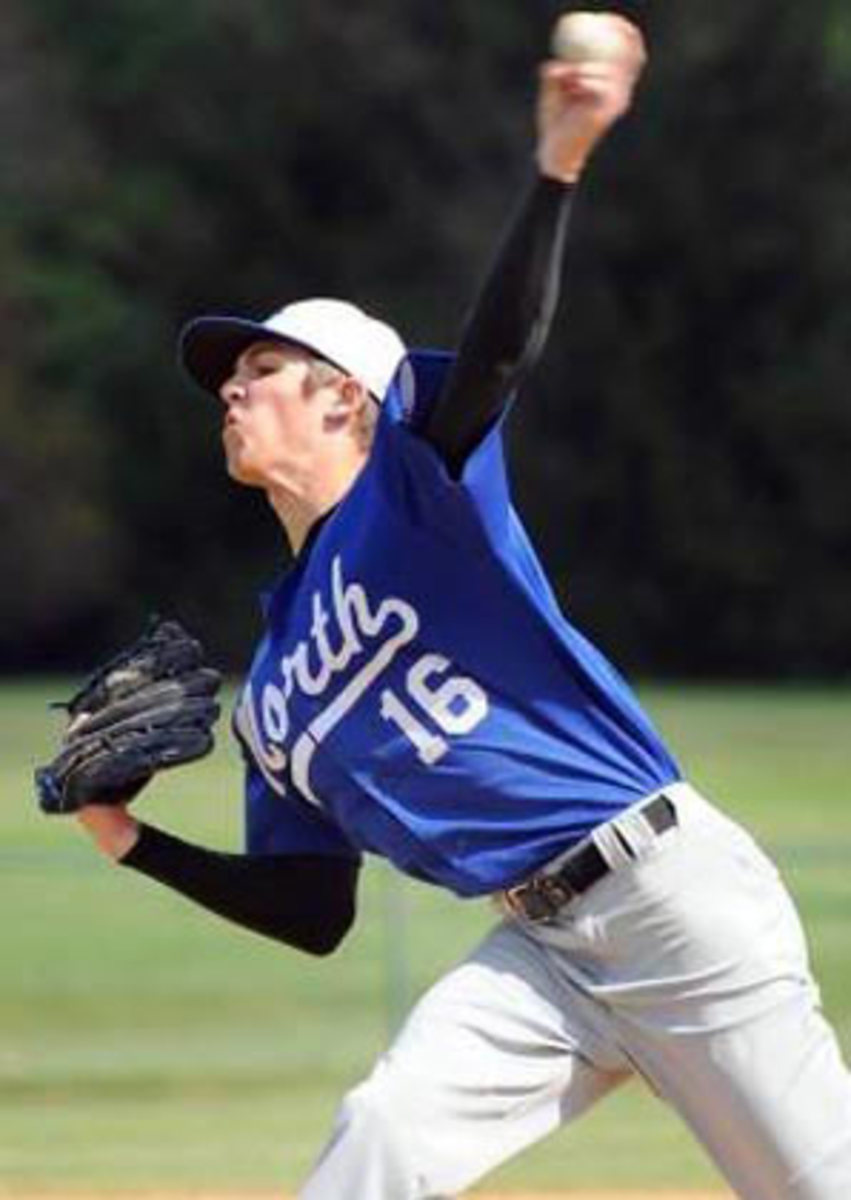A tale of two pitchers, dying young


Being young, left-handed, handsome and blessed with the talent of throwing a baseball better than 99 percent of the population may bring worries to accompany such an abundant package of gifts. The worries might include keeping your mechanics clean, taking care of your arm, staying on top of your breaking ball, and the like. Thick in the promise of youth, those worries should not include dying.
David Bachner and Greg Montalbano, young left-handed pitchers, died 10 days apart last month. You might not have heard of either one of them. But you likely would have known about them if something in their strong, athletic bodies had not gone so horribly wrong, so horribly soon. You should know about David and Greg, even if they did not get to throw a pitch in the major leagues.
David Bachner was just 18 years old, a star pitcher at West Windsor-Plainsboro North High School in New Jersey who was about to continue his pitching career on a scholarship at Seton Hall, until his mother found him on the floor of his bathroom in cardiac arrest Aug. 11. Ten days later Montalbano, once the top pitching prospect in the Boston Red Sox organization, died at the age of 31 after a courageous, 13-year fight with cancer.
Of course, their deaths made no sense, especially to our sensibilities of youth and athletics. Whitman captured the virility we associate with youth when he wrote, alliteratively and beautifully, "Youth, large, lusty, loving -- Youth, full of grace, force, fascination." Those blessed with athleticism in youth are doubly admired in our culture, like Michelangelo's David, on figurative pedestals 500 years later. They are inspirational and aspirational figures, so when they die, when their bodies fail, we are shaken even if we were not fortunate enough to have known them.
David Bachner, by all accounts, touched everyone who knew him, even if they were unaware of his pitching talents. Teachers, school officials and students knew him by his smile, his confidence and his sincerity. The baseball community also knew him for his pitching. He set school records with a 17-3 record, 1.50 ERA and 239 strikeouts. His senior season was one of the best in New Jersey history: 9-2 with a 0.97 ERA and 125 strikeouts in 64 2/3 innings.
At 6-foot-2, he was the embodiment of health and promise, except for a slight problem with his heart. He had worn a heart monitor briefly during his American Legion season, but no one seemed too concerned. "We were aware Dave had a slight mitral valve disorder," his father, Steve Bachner, said, "but this is a manageable disorder and he passed his athletic stress tests with flying colors."
One day he was the best pitcher in the history of his high school, ready for a career at Seton Hall and beyond, and the next day there was no answer on his cell phone when his parents tried to reach him. They called 911 and raced home. They arrived before the officers. Rhonda Bachner found him unresponsive on the bathroom floor.
David was gone. It made no sense, though doctors at the Children's Hospital of Philadelphia are trying to determine why, at least in medical terms. West Windsor-Plainsboro North renamed its field David J. Bachner Field. At his wake, 1,400 people waited in line for hours to say goodbye to David.
"David touched everyone," Rhonda said. "He will never be forgotten."
Likewise, Greg Montalbano left an unforgettable mark without ever throwing a pitch in the big leagues. He first was diagnosed with testicular cancer in 1996 as a freshman at Northeastern University, where he would be a teammate with future Tampa Bay first baseman Carlos Pena. Within three years Greg was drafted in the fifth round by Boston and named its top pitching prospect after posting a 9-3 record with a 2.96 ERA in Class A ball. He made it to Double-A, where he played with future Red Sox first baseman Kevin Youkilis. He also later played with Jon Lester on the 2004 Gulf Coast Red Sox. Lester, of course, would beat his own cancer and become a world champion with the Red Sox. Cancer kept attacking Greg.
He underwent too many surgeries to count -- maybe 16, maybe 17 -- for too many tumors that would not stop coming. "I am a tumor machine," he once told TheBoston Globe. "I make tumors. I have no idea why."
The Red Sox released him in 2005, but he revived his career by pitching brilliantly in independent ball in 2006 -- until the cancer came back again, this time a malignant tumor on his hip. Last year six more tumors were found.
Greg kept fighting and kept smiling, especially when giving his time for fund-raising efforts for the Jimmy Fund and other causes. He saw others who were ill and needy and considered them less fortunate. He, after all, knew the joy that pitching brought him.
Greg last pitched in 2006. The cancer finally won out on Aug. 21. The next day, as they learned of Greg's death, Pena and Youkilis dedicated their games that night to Greg. Incredibly, Pena and Youkilis both homered that night, Pena holding up a handmade sign in the dugout for the television cameras that said, "For U Monty," and Youkilis pointing to the sky as he crossed the plate to acknowledge his friend.
Then, more incredibly, Pena hit a second home run that night. And then Youkilis, too, hit a second home run.
David Bachner and Greg Montalbano are gone far too soon. Their passings remind us of the fragility of life and what we prefer to think of as this safe, fortunate realm we know as sports. Because of that reminder, but mostly because of who they were, not so much how well they pitched, they left a legacy that is as "full of grace, force and fascination" as youth itself.
